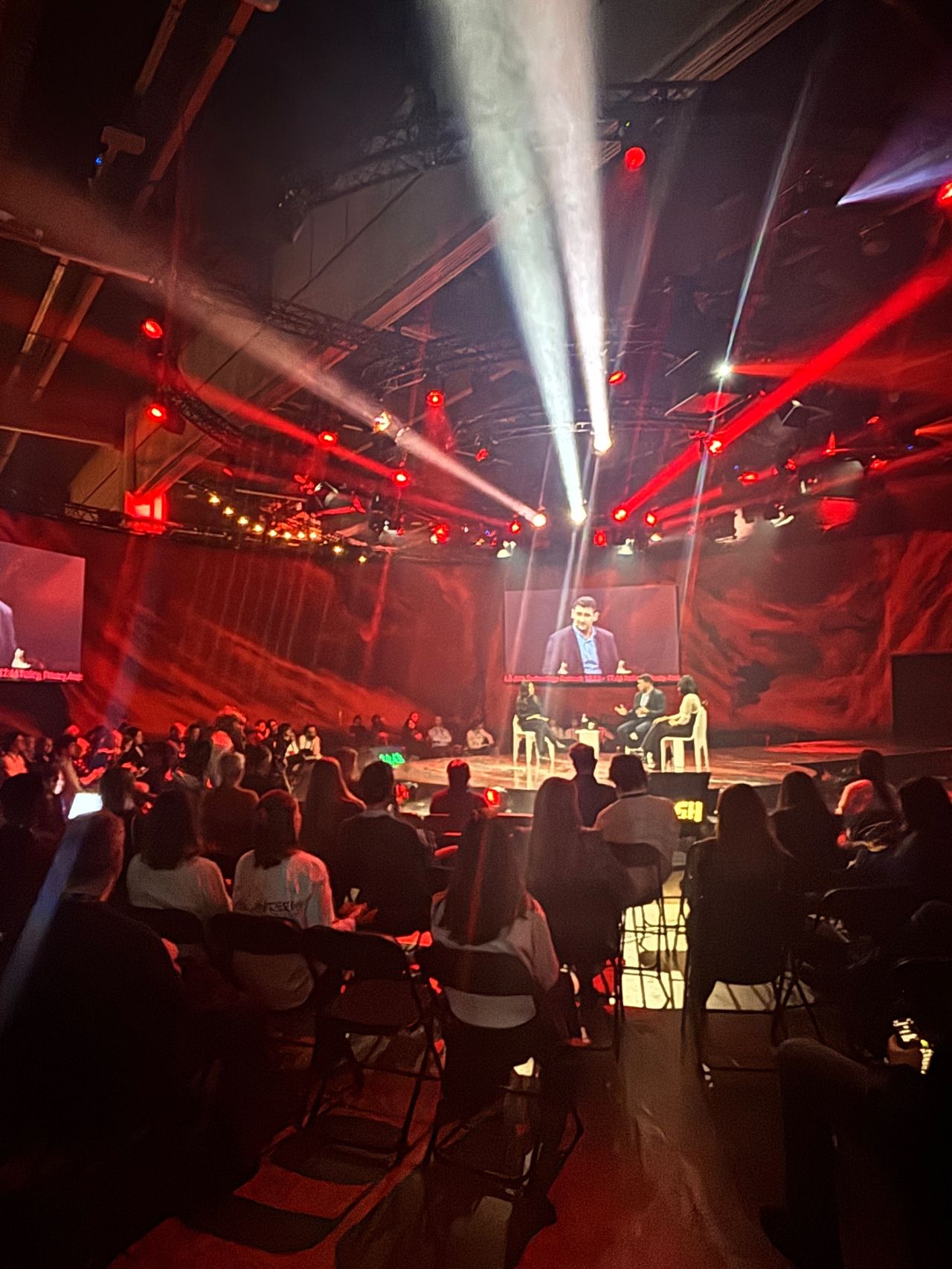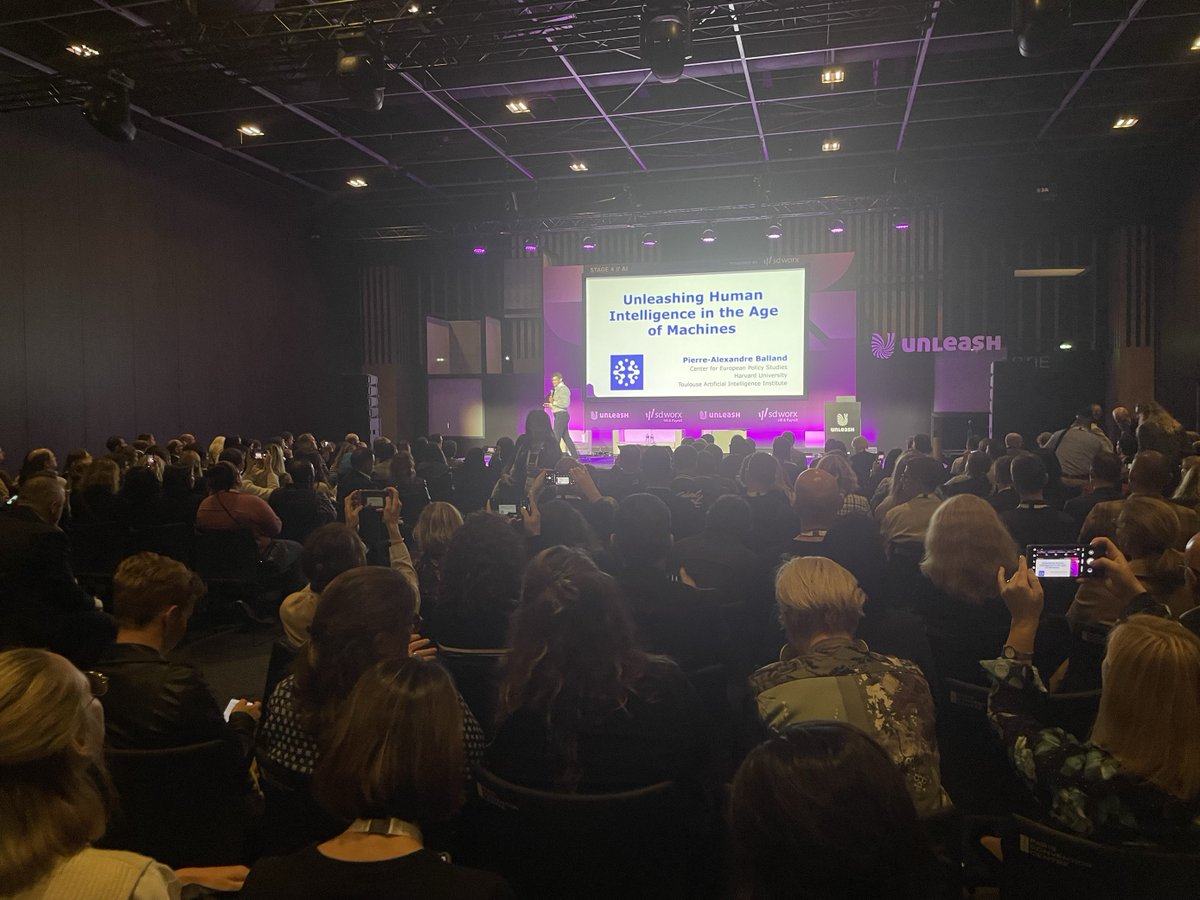Human intelligence in the age of machines at UNLEASH in Paris
Wonderful to share Slush 2024 Impact Stage with the brillant Dorothy Chou (Google DeepMind) and Melissa Heikkilä (MIT Technology Review)!Our panel came bearing good news on the future of AI in Europe, highlighting the immense talent pool available across the continent and an policy shift towards fostering innovation and tech investments (and not only regulation). The first step for Europe to forge ahead in AI is to address the fragmentation of its research and innovation system, as highlighted in our work at CEPS (Centre for European Policy Studies) and the Mario Draghi and Enrico Letta reports.

Human intelligence in the age of machines at UNLEASH in Paris
Last month, I had the opportunity to present on human intelligence in the age of machines at UNLEASH World, the world’s leading HR Conference and Exhibition. Here are some of the key takeaways from my talk: (1) AI offers a golden opportunity to create meaningful jobs and free workers to focus on what they do best, (2) realizing this potential requires fostering AI literacy, reshaping workflows, and balancing AI-driven productivity with employee well-being and (3) AI can empower human collective intelligence, enabling us to coordinate, innovate, and solve problems at scale. A big thank you to Marc Coleman, Gary A. Bolles, and the fantastic UNLEASH team for organizing such an impactful event. Stay tuned, and feel free to visit the AI World to watch the world transform with Artificial Intelligence.

Forge ahead or fall behind at the Economics of AI conference in Vienna
This outstanding AI conference brought together different academic, business, and policy perspectives. I talked about the position of Europe in the AI race. Whilst it’s true that the US and China dominate the global AI marketplace, Europe definitely shouldn’t be counted out yet. Europe’s current position should not be mistaken for a lack of talent or a lack of technological potential. Several European hubs based in cities across the continent do indeed harbour a rich pool of AI talent, scientific excellence, and commitment to responsible AI development, which can forge a path towards trustworthy AI, rooted in humanitarian and democratic values. This talk is based on an ESIR/CEPS paper with Andrea Renda.
The Geography of AI at the KKnomics festival in Stavanger
I finally made to the stage of what is know as the first, best and most fun economic festival of the Nordic countries. Here I engaged with the audience of what in means to be human in a world increasingly shared with machines and core facts about the geography of AI.
Breakthrough innovations and Europe’s strategic objectives at WIRE 2022
WIRE is the main European policy forum for innovation and regional development. The conference provides a platform for policy makers, public authorities, knowledge centers and enterprises to discuss research and innovation (R&I) practices, challenges and opportunities throughout the European regions, with a direct view on the current and future EU funding programs. In 2022 WIRE was hosted by Université Paris-Saclay under the French Presidency of the Council of the European Union.
ERSA Keynote: Cities in a Post-Corona World
Keynote at the Annual Congress of the European Regional Science Association (ERSA) on ‘Cities in a Post-Corona World’. Cities are a global magnet to talent, capital, and knowledge. The success of cities has been so spectacular that it has propelled a worrying spatial divide within almost every country. Cities are also the most resilient social systems that humans have ever created. They have dwarfed the longevity of countries and corporations, and have bounced back from pandemics, to natural disasters, to economic crises. Is this time different? Will the coronavirus crisis put a halt to the home-run of cities? Or will the societal transitions triggered by this crisis (particularly in the digital sector) be another leg to the success of cities in the 21st century? In this talk, Pierre-Alexandre Balland will build on research on complex systems and economic geography to offer an outlook for cities in a post-corona world (August 2020)
Technology and the City at the Asian Real Estate Society (AsRES) Annual Conference
How Regions Can Re-invent Themselves at The Institute for New Economic Thinking
No region can rely on past successes, rather constant transformation and re-invention is necessary for a region to keep developing. Many regional policies, such as smart specialization, aim to support regions in this process of re-invention. Yet, the operationalization of regional development policies has been rather limited because a coherent set of analytical tools to guide the policy directives remains elusive. In this webinar Pierre-Alexandre Balland proposes a policy framework around the concepts of relatedness and knowledge complexity. Based on a recent study, he shows that diversifying into more complex technologies is attractive but difficult for European Union regions to accomplish. Regions can overcome this diversification dilemma by developing new complex technologies that build on local related capabilities. These findings are then used to construct a policy framework for smart specialization that highlights the potential risks and rewards for regions of adopting competing diversification strategies.
TEDx Talk on Knowledge and the city:the digital age paradox
The virtual age is the age of cities. As information and communication technologies develop, people and firms agglomerate and innovation disproportionally concentrates in a few places in the world. How can we explain this paradox? In this inspiring talk, Pierre-Alexandre Balland reveals that cities are the knowledge incubators of modern societies, and why you need proximity and face-to-face interactions to generate the next big idea.